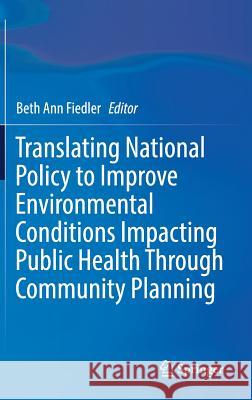Translating National Policy to Improve Environmental Conditions Impacting Public Health Through Community Planning » książka
topmenu
Translating National Policy to Improve Environmental Conditions Impacting Public Health Through Community Planning
ISBN-13: 9783319753607 / Angielski / Twarda / 2018 / 312 str.
Translating National Policy to Improve Environmental Conditions Impacting Public Health Through Community Planning
ISBN-13: 9783319753607 / Angielski / Twarda / 2018 / 312 str.
cena 402,53
(netto: 383,36 VAT: 5%)
Najniższa cena z 30 dni: 385,52
(netto: 383,36 VAT: 5%)
Najniższa cena z 30 dni: 385,52
Termin realizacji zamówienia:
ok. 22 dni roboczych.
ok. 22 dni roboczych.
Darmowa dostawa!
Kategorie BISAC:
Wydawca:
Springer
Język:
Angielski
ISBN-13:
9783319753607
Rok wydania:
2018
Wydanie:
2018
Ilość stron:
312
Waga:
0.63 kg
Wymiary:
23.39 x 15.6 x 1.91
Oprawa:
Twarda
Wolumenów:
01
Dodatkowe informacje:
Wydanie ilustrowane











